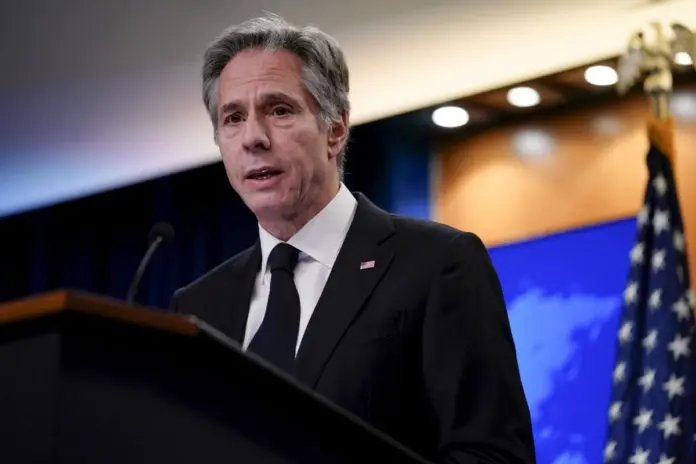- P.O. Box: 11482 Yaoundé, Cameroon; Headquarters: Efoulan, Yaoundé 3
- contact@caessinternational.org

As the war rages on in Europe and losses mount on both sides (Ukrainian and Russian), thanks largely to the nearly unwavering support provided by NATO and the European Union to Ukraine, hostilities seem to be taking a new turn one year after the conflict began. Indeed, on Sunday, February 19, 2023, U.S. Secretary of State Antony Blinken warned that China was considering supplying weapons to Russia. This news immediately sparked a wave of reactions from Western governments, notably the EU, which views such an act as a "red line" not to be crossed. Military aid from China to Russia to support its invasion of Ukraine would be a "red line" for the European Union, Josep Borrell, EU foreign policy chief, warned in Brussels. Meanwhile, Swedish Foreign Minister Tobias Billstrom, whose country holds the rotating presidency of the EU, believes that if China decided to supply arms to Russia, "it would obviously have consequences." His Luxembourg counterpart, Jean Asselborn, expressed hope that China "would not make this mistake." Similarly, U.S. Vice President Kamala Harris, present in Munich on Saturday, February 18, also questioned China’s declared neutrality, stating that "Any Chinese effort to provide lethal support to Russia would only reward aggression, prolong killings, and further undermine a rules-based order."
While China claims these accusations are merely a way for the U.S. to "pour oil on the fire" by stigmatizing Sino-Russian relations, it is important to note that the military partnership between the two countries is deeply rooted in history. Since the dissolution of the USSR, the People’s Republic of China has become Russia’s main arms customer. Its purchases have steadily increased: from one billion dollars in 1997-1998, they rose to more than two and a half billion in 2002, making that year a record for Russian arms exports, which then reached 4.8 billion dollars. It is clear that Chinese purchases have played a crucial role in sustaining the Russian military industry; they have kept the aerospace leader Sukhoi relatively healthy, especially its industrial platform, the Komsomolsk-on-Amur Aircraft Production Association.
This helps explain the American fear that this historic Russian ally might provide even stronger support. China’s neutrality on the Ukraine war is a significant inconvenience for the U.S., which is seeking more support within the UN Security Council.
In response to these accusations, which it calls fallacious, the spokesperson for the Chinese Ministry of Foreign Affairs urges the United States to seriously reflect on its own actions, do more to calm the situation, promote peace and dialogue, stop blaming others, and cease spreading false information. Despite this Chinese denial, these diplomatic quarrels reveal signs of a gradual worsening of the East-West divide, potentially dragging the Russia-Ukraine conflict into a more violent phase.